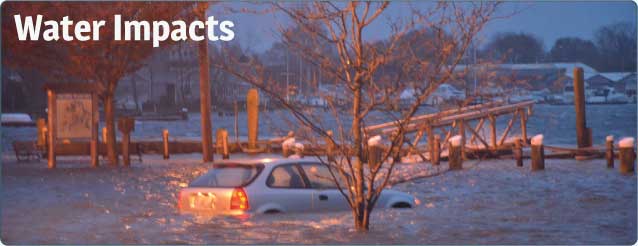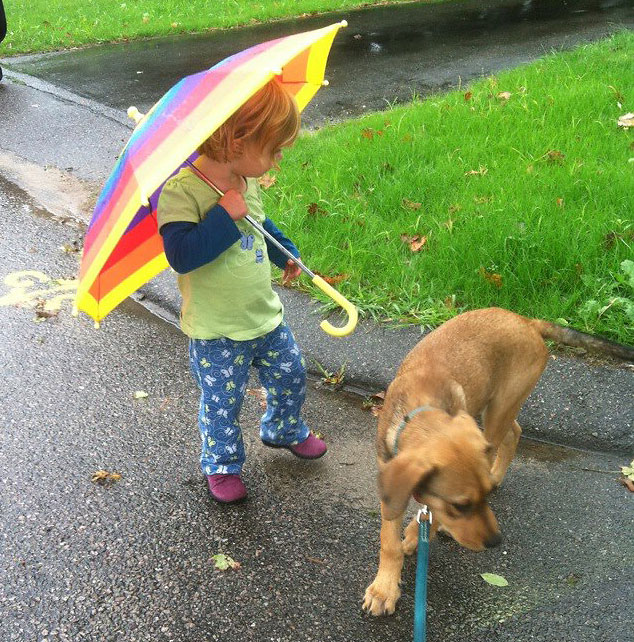
Photo Credit:RI Sea Grant
Water, water everywhere, and not a drop to drink
The impact of climate change on freshwater, which provides drinking water, nourishment for plants and animals, an economic engine, and even aesthetic value to people’s lives is, unsurprisingly, diverse and profound. Increased storm intensity and rainfalls bring more freshwater to rivers, streams and lakes, with potentially good and bad results.
In drought conditions, the rainfall is welcome, for obvious reasons. That sought-for relief fundamental to a healthy growing season and habitats may be countered by increased temperatures and the effects hotter weather can inflict on human as well as environmental health.
Climate change will likely increase winter precipitation from 20 to 30 percent by the late 21st century. But don’t get your season ski pass just yet, most of the precipitation will fall as rain. If the region has ample water and high water tables, excessive rain can cause flooding, as Rhode Island witnessed during the floods of March 2010. A few steady days of rain saturated the ground, causing massive flooding which left major shopping malls and Interstate 95 underwater. In some cases, it caused significant damage to home owners or renters – not all of which was covered by emergency funds or flood insurance. And renters are often in an even tougher spot since they are at the mercy of their landlord’s ability or willingness to speed recovery. But property damage is only one of the many impacts of increased precipitation.
Climate change will likely increase winter precipitation from 20 to 30 percent by the late 21st century. But don’t get your season ski pass just yet; most of the precipitation will fall as rain. In the winter, when the ground is frozen, it doesn’t absorb much water and flooding results. River flooding also affects water quality, and carries pollutants and catalytic (and sometimes catastrophic) excess nutrients into the freshwater system. Remember, nutrients in water systems do not equal being nutritious. Added nutrients are good in your morning cereal but not so good in water systems because they “feed” the growth of destructive algal blooms that rob the water of life-supporting oxygen, as just one example.
Who Gets Hurt? (Adobe Acrobat)

Photo Credit: O. Van Dyke
If the rain comes they run and hide their heads / They may as well be dead / If the rain comes
- Rain, The Beatles
News
“Tourists Are Flocking to Locations Threatened by Climate Change. That Only Makes Things Worse.” Vox
Factoids
Rising temperatures and changing precipitation patterns are likely to result in less reliable water supplies in many areas, leading to potential water rights issues and water shortages.
Changes to our water resources, including shifts in water availability and droughts, will affect many different sectors, including energy production, infrastructure, human health, agriculture, and ecosystems around the country.
Increasing runoff from intense rainstorms, flooding, and sea level rise may also reduce the level of water quality in freshwater lakes, streams, and rivers, damaging vulnerable ecosystems and potentially resulting in the contamination of drinking water supplies.




